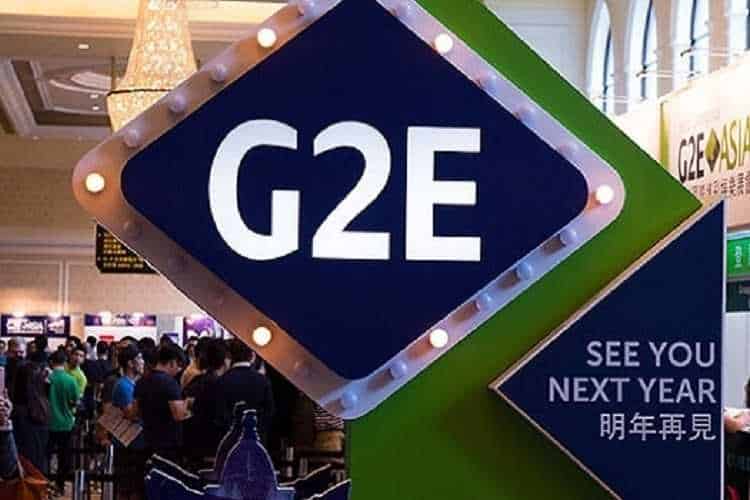It’s been a rough couple of days for the Philippines gambling market.
Heck, it’s been a rough six months for the Philippines gambling market.
However, the events over the last week or so have underscored the disaster that the Wuhan coronavirus has represented for the island nation and its casino industry.
Just yesterday, the American Gaming Association (AGA) and Reed Exhibitions – which jointly host an annual series of regional gambling trade shows under the Global Gaming Expo (G2E) banner – postponed their highly anticipated G2E Asia and G2E Asia @ the Philippines events until next year.
The larger Asia show has been rescheduled to take place May 25-27, 2021, at the Venetian Macau. That show was already rescheduled to December 2020 before this latest deferral, despite Macau finally opening back up to international gamblers in recent weeks.
However, worse than that, the G2E Asia @ the Philippines expo has been pushed back more than an entire year, now slated for November 10-11, 2021.
That event will be held at the Manila Marriott Hotel.
The AGA explains its decision as one of obvious prudence:
“By shifting our focus to 2021, we can ensure that we meet the high expectations for these events that we share with our valued attendees and exhibitors. …
G2E Asia, and its organisers the American Gaming Association and Reed Exhibitions, are grateful for your continued support and apologise for any inconvenience that this may cause.”
Hopefully, by the time the pair of G2E Asia expos rolls around next year, these markets will have mostly recovered from the massive financial losses suffered due to the coronavirus outbreak.
However, while Macau – the world’s largest and most profitable gambling district – will surely land on its feet, the Philippines have been hit quite a lot harder.
Land-based casinos and resort casinos in the Philippines are not tourist destinations of the same sort that Macau’s venues are, but they do attract significant interest from the Asian market and generate substantial revenue for the Philippine government when times are good.
But times are not good, and with the perpetually extended casino lockdowns in the islands, there’s no telling when times will start getting better.
Despite the above, one of the most surprising aspects of the COVID-19 outbreak in the Philippines has been the effect it’s had on the controversial POGO market.
POGOs, or Philippine Offshore Gaming Operators, are online casinos that are based in the Philippines, employ mostly Chinese immigrants, and serve mostly mainland Chinese gamblers.
Indeed, per Philippine gambling law, Filipinos living in the islands cannot use POGOs to gamble, reducing these venues’ tax-revenue-generating capabilities for the government.
Even more interestingly, while legal online casinos have largely survived the global coronavirus shutdowns unscathed (and, in the US, have almost singlehandedly kept the gambling industry afloat in those states that offer online gambling and sports betting), POGOs have struggled mightily.
Partly, this is due to the employee restrictions placed on them by President Rodrigo Duterte’s administration, reducing their operating capacity by half.
This has cut into overhead and reduced the number of patrons these live dealer sites can entertain, making smaller POGOs unprofitable. That, as a result, has caused a number of the 60 or so licensed POGOs in the Philippines to close up shop for good.
It gets worse. While a few POGOs gave up the ghost in the early weeks and months of the coronavirus scare, many more have since abandoned ship.
According to Labor Assistant Secretary Dominique Tutay, though many of the nation’s regulated POGOs remain up and running, there were some 200 or so total POGOs – 140 of which were unregulated operators – doing business in the islands.
Even though many of these companies weren’t paying taxes to the state, they were providing economic down-market benefits by purchasing utilities, renting housing, patronizing retail markets, and so on.
Now, thanks to the coronavirus and a growing disdain for the Chinese on the part of native Filipinos, it is said that 100 or so of these operators have left the business altogether.
But unfortunately for all involved, China apparently doesn’t want them back.
That has led to an increase in crime perpetrated by many Chinese immigrants in the Philippines, which has led to more unrest and distrust among the island’s natives for these Chinese.
Whether the regulated, more upstanding and cooperative POGOs can survive this latest black eye remains to be seen.
Hopefully, by this time next year, COVID-19 – and all its disastrous effects on gambling in the Philippines – will be a thing of the past.
Sources: Gambling Insider, Tunf

